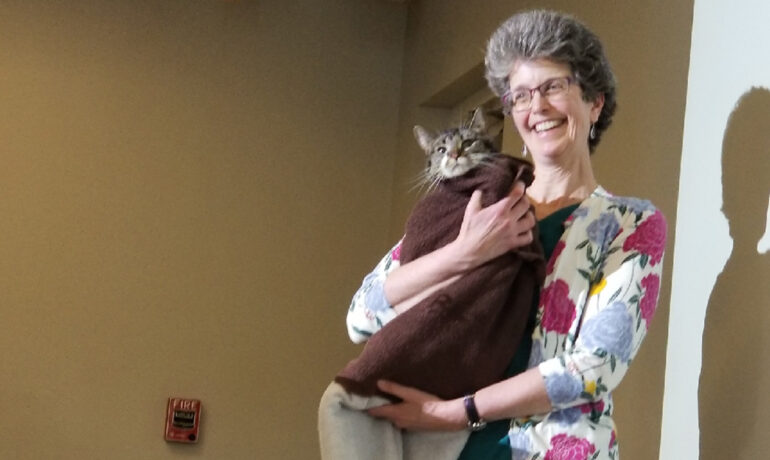Why pets benefit from anxiety-reducing meds before anesthesia
For many years, veterinarians advised pet owners to withhold all food and water for 12 hours before anesthesia. This common recommendation was based on the concern that food or water would reflux up the esophagus, and create a choking risk. Skipping oral medications were often advised. New recommendations from the Americal College of Veterinary Anesthesiologists Read here
Studies have shown up to six milliliters of fluid can be given orally and not increase the risk for reflux. Under anesthesia, even when fasted for 12 hours, the fluid in the stomach is refluxing slightly. Giving an awake patient broth or liquid medication did not increase reflux under sedation. Offering a pet baby food, or a broth popsicle to lick while giving the intravenous anesthetic is a good technique to decrease anxiety and provide a rewarding experience during induction. Decreasing fear in any way through low-stress handling, a calm environment, and using rewards will decrease adrenaline and catecholamine release. When these stress-related hormones rise, they can cause an irregular heartbeat, and increase anesthetic risk.
Giving anxiety-reducing medications orally prior to anesthesia will decrease fear and some of the stress hormone release. Trazadone, Gabapentin, Alprazolam are a few of the premedications that are used for dogs and cats. These medications may cause a slight sedative effect, which helps to decrease the anesthetic dose. A lower anesthetic dose often decreases anesthetic risk. There are case reports showing irregular heart rhythms in dogs given the first phase of sedation when they were nervous awaiting surgery. Case studies of dogs have demonstrated irregular heart rhythm at induction when the dogs were nervous without anxiety-reducing medication. When anti-anxiety medication was given, the heart rhythm stayed normal.
Of all the premedication, gabapentin is the most beneficial. It decreases anxiety, decreases sensitivity to touch, and decreases pain during recovery. It is available in liquid form, and can easily be given by syringe or mixed in 2 ml of baby food. Trazadone and Alprazolam are in pill form. They can be crushed and mixed into a small amount of baby food. Pheromones sprayed in the cage for recovery, and on the surfaces, the pet will be laying on, help provide calm as well. These steps will help your pet wake up smoothly, eat and drink earlier and heal with fewer complications than when not used.
If your pet is going to have surgery, don’t be surprised when your veterinarian prescribes a pre-surgical anxiety-reducing medication. Do not refuse or skip this medication. It is important for your pet’s welfare and decreased anesthetic risk. The American Animal Hospital Association has guidelines, and a great chart for veterinary staff to choose the best medication according to the health, and anxiety level of the patient. You can download the document here.
Every day, Every way with Every pet make the care low stress.
Thank you,
Sally J Foote DVM, CABC-IAABC, LSHC-S
